Welcome to the IECMH & CAFBH Event site! This will be the seventh year we have hosted these events jointly, offering presentations by national speakers, as well as drawing on the expertise of Alaska professionals. This event offers a unique opportunity for participants to expand their knowledge and broaden their thinking about this field.
Mental health clinicians, substance abuse counselors, early interventionists, university faculty, health practitioners, child protection and juvenile justice workers, court staff, family support workers, parent educators, foster parents, and early care and learning professionals and others concerned about the importance and promotion of behavioral health for children and youth are invited to join us.
This is a virtual event. For $150, you can experience it all from anywhere–you do not even have to leave your home or office!
Sessions that are recorded will be available for you to watch on this site until June 11, 2023, 11:59 pm.
We welcome you and hope that you will find this an exciting opportunity to learn, connect with partners and support Alaska’s children and youth!
A panel of program leaders will share the strategies they are using to integrate infant and early childhood mental health principles and competencies into programs and practices and to build the infant and early childhood mental health workforce.
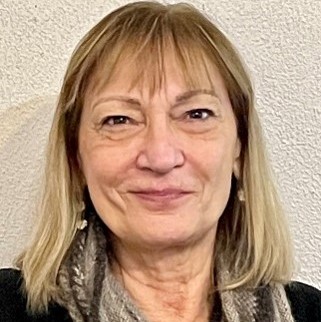
Gail Trujillo, M.Sc., PhD (ABD), IMH-E®
Gail Trujillo, M.Sc., PhD (ABD), IMH-E®, is the Chair of the Alaska Association for Infant and Early Childhood Mental Health (AK-AIMH). She is Endorsed as an Infant Mental Health Specialist® and provides Early Childhood Mental Health Consultation for several Head Start programs in Southeast Alaska. In addition, Gail is the program coordinator for the Early Learning Program (Part C) for Sitka, Kake, and Angoon. Gail is also a trained facilitator for Zero to Three The Growing Brain, Neurorelational Framework, FAN, and Circle of Security.
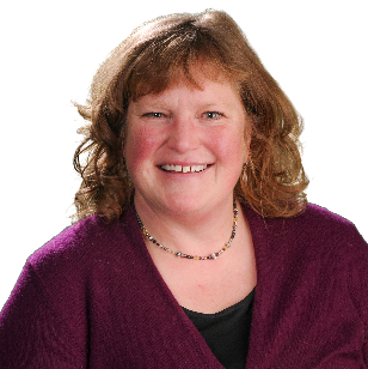
Meghan Johnson, MS
Meghan Johnson, MS, currently serves as the Director of Alaska’s QRIS-Learn & Grow. Meghan has Master’s in Early Intervention from the University of Oregon and an Infant Parent Mental Health Post Graduate Certificate from University of Boston Massachusetts.
Meghan has worked at both the state and local level with Part C, special education, parent education, university, and quality improvement systems. Meghan is passionate about development of quality early childhood systems to align goals, funding, streamline supports and resources, and application of research to practice strategies to benefit early childhood programs, educators, children, and their families.
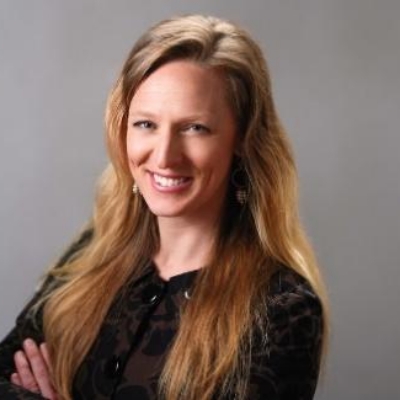
Hattie Harvey, PhD
Hattie Harvey, PhD, is an Associate Professor in the Department of Psychology at the University of Alaska Anchorage and the Mental Health Consultant for Cook Inlet Native Head Start. Her primary teaching focuses on children’s mental health, childhood development, and research methodology. Her research has focused on assessment practices in early childhood, and social-emotional and behavioral interventions for young children, with recent work related to children with FASDs and can be found in a number of peer-reviewed journals. Dr. Harvey is a nationally licensed school psychologist and licensed Psychologist in the state of Alaska. She was also recently awarded a $1.25M U.S. Department of Education, Office of Special Education grant to develop an interdisciplinary training model for early childhood related service providers.
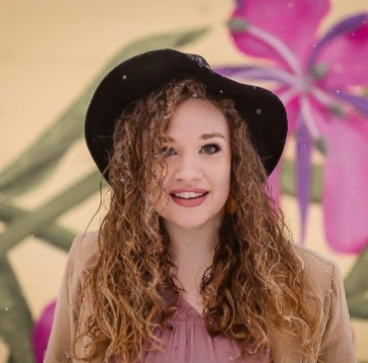
Kristen McKay, LCSW
Kristen McKay is a Clinical Supervisor for the Pediatric Behavioral Health Consultants at Southcentral Foundation. In her role, she supports eight Pediatric Behavioral Health Consultants across five different programs as they provide services for Alaska Native infants, children and families. Kristen has been with Southcentral Foundation since 2017 and is also a part of the Clinical Leadership Team for the Indigenous Project LAUNCH (Linking Unmet Needs in Children’s Health) Grant awarded to Southcentral Foundation in 2018 which aims to expand workforce competency and services related to Infant and Early Childhood Mental Health among Alaska Native populations. Kristen holds a Master’s degree in Social Work and an endorsement in Children’s Mental Health from the University of Alaska Anchorage and is a Licensed Clinical Social Worker (LCSW). She was born and raised in the heart of the Interior among the fireweed and tundra of Fairbanks, Alaska and is passionate about furthering state-wide endeavors to support early relational health for infants, children & families across Alaska.
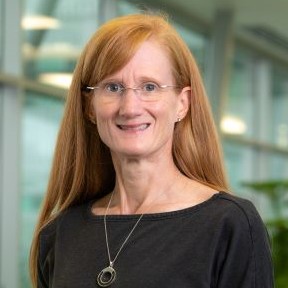
Mary Dallas Allen, PhD, MSW
I live and work on the land of the Dena'ina
Mary Dallas Allen, PhD, MSW, is a Professor of Social Work and the MSW Program Coordinator at the University of Alaska Anchorage. Dr. Allen is the social work faculty member for two interdisciplinary training programs at UAA: Project BLENDS and AK LEND without Walls. Project BLENDS trains graduate-level scholars in infant and early childhood mental health, and LEND trains graduate-level fellows in leadership practice in working with children with intellectual and developmental disabilities. Dr. Allen's social work research focuses on infant and early childhood mental health consultation, rural social work practice, school social work, and climate change and social work practice.
This workshop will provide the participants with an overview of the FAN (Facilitating Attuned Interactions). The FAN Approach serves as a framework for parent engagement and reflective practice in home visiting. FAN focuses on parents' urgent concerns and helps home visitors tailor responses to match what parents need most in the moment. FAN also helps practitioners recognize how their own internal sense of regulation/dysregulation affects their ability to be fully present with a family. This training will offer strategies to help practitioners feel balanced during home visits with families.

Gail Trujillo, M.Sc., PhD (ABD), IMH-E®
Gail Trujillo, M.Sc., PhD (ABD), IMH-E®, is the Chair of the Alaska Association for Infant and Early Childhood Mental Health (AK-AIMH). She is Endorsed as an Infant Mental Health Specialist® and provides Early Childhood Mental Health Consultation for several Head Start programs in Southeast Alaska. In addition, Gail is the program coordinator for the Early Learning Program (Part C) for Sitka, Kake, and Angoon. Gail is also a trained facilitator for Zero to Three The Growing Brain, Neurorelational Framework, FAN, and Circle of Security.
Jeanine Jeffers-Woolf
Jeanine Jeffers-Woolf, LMFT, IMH-E®(IV) (Infant Mental Health Mentor, Clinical), lived in Fairbanks for over thirty years and had the good fortune of working as an early childhood mental health clinician and consultant with many programs in the Interior. She also worked with early childhood programs throughout Alaska in her role as a NEAR@Home Facilitator and FAN Trainer. Jeanine is partly retired now and recently moved from Alaska. She is grateful to attend this conference virtually.
During this session, participants will gain knowledge about specific perinatal mental health disorders, learn practical tools for screening and assessment, and receive links for local and national resources for support and referral.

Joclyn Reilly, LCSW, PMH-C
Joclyn Reilly, LCSW, PMH-C, is the Chairperson of the Board of Directors for Postpartum Support International, Alaska Chapter (PSIAK). She is the Lead Mental Health Therapist with Family Support Counseling at Providence Alaska Children’s Hospital where she has worked since 2012. In addition to providing individual therapy, she teaches Happiest Baby on the Block classes and facilitates the Monday Mamas Support Group at Providence. Joclyn is married and parenting three school-aged boys.

Meghan Yarmak, LPC, PMH-C
Meghan Yarmak, LPC, PMH-C, is a Licensed Professional Counselor in Anchorage. She is certified in Perinatal Mental Health Counseling through Postpartum Support International and is a member of the American Society for Reproductive Medicine bringing assessment and counseling services to Alaska for individuals pursuing Assisted Reproductive Therapies. Meghan is one of the founding members of and served on the board for the Alaska Chapter of Postpartum Support International for seven years and has presented on perinatal mood and anxiety disorder across the State of Alaska. Meghan lives in Anchorage and spends much of her free time with her partner and daughter exploring Alaska and far off magical lands.
Strengthening Families™ is a research-informed, strength-based approach to helping families reduce stress, address risk factors, and promote healthy development. The overarching goal is the promotion of child and family well-being. It is based on engaging families, programs and communities in building five protective factors that help families succeed and thrive, even in the face of risk and challenges. The following factors describe the Strengthening Families approach:
This workshop offers an overview of the Protective Factors and an opportunity for action planning to implement across agencies and varying levels of systems. Participants will be equipped with resources as well as information on upcoming Strengthening Families Alaska and Strong Parents Alaska training.

Amanda Metivier, MSW
Amanda Metivier, MSW, is the Director of the Alaska Child Welfare Academy at the University of Alaska Anchorage. She has dedicated her career and personal life to child welfare reform to include; extensive direct service work with adolescence, program development, policy reform, and as a foster/adoptive parent. Amanda trains several Protective Factors Frameworks including Strengthening Families Alaska, Strong Parents Alaska, YouthThrive, Standards of Quality Care, and Strengthening Families in Human Services.
Kimberly Mouriquand
Kimberly Mouriquand is a trainer with the Alaska Child Welfare Academy at the University of Alaska Anchorage. Strengthening Families Alaska and Strong Parents Alaska are two of her favorite frameworks to facilitate discussions with community partners and families. "Exploring the small and significant actions we can take to see and promote strengths in families is the best part of the work."
During the COVID-19 pandemic, it has been estimated that in the United States, over 200,000 children lost a parent or caregiver to COVID-19 through December 2021. These losses can be devastating for the development and long-term well-being of all children, including very young children, leading to emotional and behavioral dysregulation, regressions in sleeping, eating, toileting, difficulties with attachment, problems in day care or preschool, and mental health issues that are likely to increase over time without supportive interventions. Racial and ethnic disparities in caregiver loss have been evident with children losing their only caregiver. Such losses for young children can create even more acute mental health, educational, and community concerns that require attention. In comparison with natural disasters, the COVID-19 pandemic has resulted in many more losses without needed support. The caregiver deaths due to COVID-19 have been a significant threat to the functioning of children and families, compounding additional challenges to physical and mental health already impacted by economic and other stresses in families. Individual support for caregivers accompanied by positive early childhood and community settings can play key roles in providing a caring environment to support resilience for young children through listening, being emotionally available and present for them.
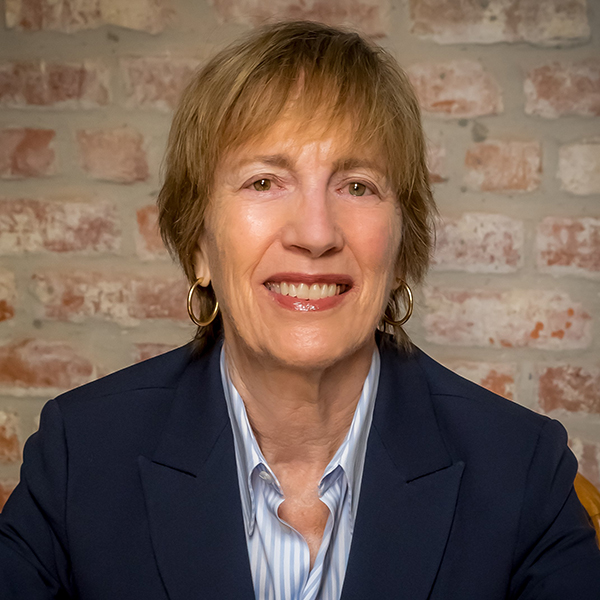
Joy D. Osofsky, PhD
Joy D. Osofsky, PhD, is a clinical and developmental psychologist, Ramsay Endowed Chair in Psychiatry and Barbara Lemann Professor of Child Welfare at Louisiana State University Health Sciences Center in New Orleans. She has published widely and authored or edited eight books on trauma in the lives of children. Currently, together with three colleagues, she is editing the two volume WAIMH Handbook of Infant and Early Childhood Development. Dr. Osofsky is past president of ZERO to THREE and of the World Association for Infant Mental Health and has been awarded as an Honorary President of WAIMH.
Currently, she is on the Board of Zero to Three and is Clinical Consultant on the Leadership team for the Zero to Three Infant Toddler Court Program implementing Safe Babies Court Teams. She has had much experience with response to disasters playing a leadership role as Clinical Director for Child and Adolescent Initiatives for Louisiana Spirit, the Crisis Counseling Program in Louisiana following Hurricane Katrina and Co-Principal Investigator for the Mental Health Capacity Program following the Deepwater Horizon Oil Spill. She has served as Co-Principal Investigator for Centers within the National Child Traumatic Stress Network since 2003.
She is also working with the COVID Collaborative in an effort to help children and families impacted by losses. In 2007, Dr. Osofsky received the Sarah Haley Award for Clinical Excellence in trauma work from the International Society for Traumatic Stress Studies and in 2010 was recognized with the Reginald Lourie Award for leadership and outstanding contributions to the health and welfare of children and families. In 2020, she was awarded the Translational Research Award from the International Congress on Infant Studies. In 2021, she received the ZEROTO THREE Lifetime Achievement Award.
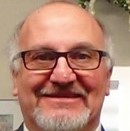
Gerard Costa, PhD
Gerard Costa was the founding director of the Center for Autism and Early Childhood Mental and is a Professor in the Department of Family Sciences and Human Development at Montclair State University. He is a member of the faculty of the Infant and Early Childhood Development (IECD) Ph.D. program at Fielding University (formerly the ICDL Graduate School). He serves as a trustee and President of the Interdisciplinary Council on Development and Learning, founded by Drs. Stanley Greenspan and Serena Wieder and has served as a consultant to ZERO TO THREE for the past 20+ years. He is one of the first 16 “Expert Faculty” selected by ZERO TO THREE in the new DC: 0-5 (2016) Classification system. He sits on several state and non-profit boards and was appointed by two New Jersey Governors to serve on the New Jersey Council for Young Children, where he headed the Infancy and Early Childhood Mental Health committee.
He received his Ph.D. in Developmental Psychology from Temple University and was one of the first 16 recipients of the DIR certificate by Dr. Stanley Greenspan and Dr. Serena Wieder. He is a trained faculty member in the Brazelton Touchpoints Model and holds a “Self-Reg” Certificate from the MEHRIT Center in Canada, led by Dr. Stuart Shanker. He holds an endorsement as an Infant Mental Health Clinical Mentor, through the New Jersey Association for Infant Mental Health and Michigan Association for Infant Mental Health. He led a 4-year Infant and Early Childhood Mental Health systems development project in partnership with Child Development Services of Wyoming and the Wyoming Developmental Disabilities Division and is the principal author of a 15 module Infant and Early Childhood Mental Health training curriculum. He led a multi-year training and consultation project with 25 Infant Mental Health mentors with South Dakota Voices for Children, and he led a strategic planning initiative with the Missouri Association for Infant Mental Health-Early Childhood. He has presented keynotes, workshops and trainings at hundreds of events and programs. Since 2018 he serves as the Coordinator of the Northeast Regional Terrorism and Disaster Coalition. He served as the Principal Investigator of the New Jersey Inclusive Education Technical Assistance (NJIETA) project, an $8 Million, 5-½ year project advancing full inclusion in New Jersey Public Schools. He is past president of the NJ Association for Infant Mental Health and is President of the Interdisciplinary Council on Development and Learning (ICDL).
He was part of a Zero to Three team that supported childcare staff in the wake of the 2005 Hurricanes Katrina and Rita in the Gulf Coast. In the early 2000s, he worked with the Child Development- Community Policing program at Yale University, and he worked with New York and New Jersey programs following Superstorm Sandy. He is also trained in Critical Incident Debriefing.
Dr. Costa has been honored with numerous awards including the Christian Kjeldsen Champion for Children Award by the NJ Child Care Advisory Council, the Lucille Weistuch Early Childhood Special Education Award, by the New Jersey Division for Early Childhood (NJDEC), and the Golden Bell Leadership Award, by the New Jersey Mental Health Association. He has conducted presentations and trainings in 31 states and 11 countries, and he is the recipient of numerous awards. He is a NJ licensed psychologist and is the author of articles and book chapters on autism, infant mental health and professional formation. He is the 2021 recipient of the Weatherston Leadership in Infant Mental Health Award, from the Alliance for the Advancement of Infant Mental Health.
Join us for the annual AK-AIMH awards presentation, introduction of new board members, and our report to members of the Association’s 2022/23 projects and activities. This is a chance to learn about AK-AIMH’s membership benefits, including 30 hours of free training in infant and early childhood mental health topics.
By working with children, we tend to the needs of many. We often focus our energies outside of ourselves, in an effort to meet the high demands needed in tending to children. Come join us as we learn tools and techniques to strengthen our personal foundation. Join as we explore ways to support and nourish ourselves directly within our work environments. We will discuss strategies and tools to energize ourselves and help us meet our own needs, while tending to the needs of others around us. We will also discuss how these tools simultaneously drive connection, communication and the empowerment of teams. This session will offer hands on exercises, strategies, and tools to support building sustainable work environments.
Learn & Discover:
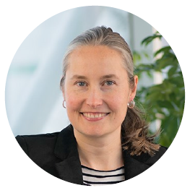
Woodrie Burich
Woodrie Burich is an award-winning thought leader, published author, and TEDx speaker known for her proprietary approach to setting boundaries and addressing burnout in fast-paced and high-demand work environments. She is the owner of the Integration Group and founder of the Energy Choice Power™ and Boundaries Before Burnout® group coaching programs. Her mission is to empower professionals to create sustainable and thriving work lives that enable them to enjoy more, stress less and connect with their communities in positive and meaningful ways. She brings over 20 years of senior leadership and change management expertise working with Fortune 500 companies on global tech projects and billion-dollar merger & acquisition work. Woodrie is a member of the Forbes Coaches Council, recipient of a gold Stevie Award for her Achievement in Thought Leadership and a bronze Stevie award winner for Female Thought Leader of the Year. She is a national speaker and about writes about sustainable success and inspired leadership in various publications. More about her may be found at www.workboundaries.com.
As rewarding as IECMH practice can be, there are overwhelming, confusing, or frightening moments, even for the experienced interventionist. How do we stay attuned and present – to see, hear and understand – in the face of interactions that sometimes leave us utterly exhausted, angry, sad, confused, or numb? Reflective Supervision/Consultation (RS/C) offers space for interventionists to ponder and understand the reactions, thoughts, and feelings about our work and to provide caregivers with infants and young children with thoughtful intervention that supports their capacities. This workshop will review elements of RS/C, with attention to how to practice from an anti-racist perspective.
Learning Objectives

Julie Ribado, PhD Candidate, LMSW, IMH-E Mentor
Julie Ribaudo, Clinical Professor of Social Work at the University of Michigan, is an IMH Specialist and Reflective Supervisor/Consultant for IMH providers and supervisors. She is involved in research as a faculty member of Zero to Thrive through the Department of Psychiatry at UoM. She is a doctoral candidate at Wayne State University in Detroit, Michigan.
Professor Ribaudo was the 2013 recipient of the Selma Fraiberg Award for outstanding contributions to Michigan infants and their families, awarded by the Michigan Association for Infant Mental Health, and the 2011 and 2015 Professor of the Year, awarded by the UMSSW Student Union.
This session will introduce the COS Model, the theory of change, and the new COS Classroom Approach.
Learning Objectives:

Deidre Quinlan
Deidre Quinlan has been passionate about Circle of Security since she was introduced to the model in 2007 at the University of Minnesota in the first cohort of the IECMH Certificate Program. Today, as part of the second generation of Circle of Security International leadership, her daily stewardship focuses on the fidelity and the future of COSI, considering personal impact, professional development, and global relevance. As a licensed clinical social worker, Deidre is particularly interested in resilience and the ability of the developing person to persevere and overcome childhood risks and adversities. She has worked in a variety of settings including childcare centers, residential treatment, group homes, schools, day treatment, after school programs, and out-patient clinics.
At home, Deidre is a mother of three adult children who are off on grand adventures. She lives and works from home on a hobby farm on the North Shore of Lake Superior with her husband, some horses, chickens, a few cats, and sometimes a dog. As Deidre’s work takes her to places all around the world, she feels fortunate to meet others who are also filled with the desire to make a difference. As legacies go, supporting her children's developing capacities for caring, self-reliance, and resilience leave her filled with hope for the possibilities of what could be.
This training and discussion will offer practical tools to help us sustain, individually and collectively, in the face of trauma, secondary trauma and overwhelm. Whether this is related to our work, our personal lives, the pandemic, democracies dissolving, systematic oppression and structural supremacy surfacing in exceedingly painful ways, or the unfolding of the climate crisis, we will discuss what the consequences are as well as strategies for sustaining ourselves and each other. This will be interactive so please come with questions or topics you’d like to cover. It is very helpful for Laura if everyone can have their cameras on so if you are able to do so, we would appreciate it.
Learning Objectives
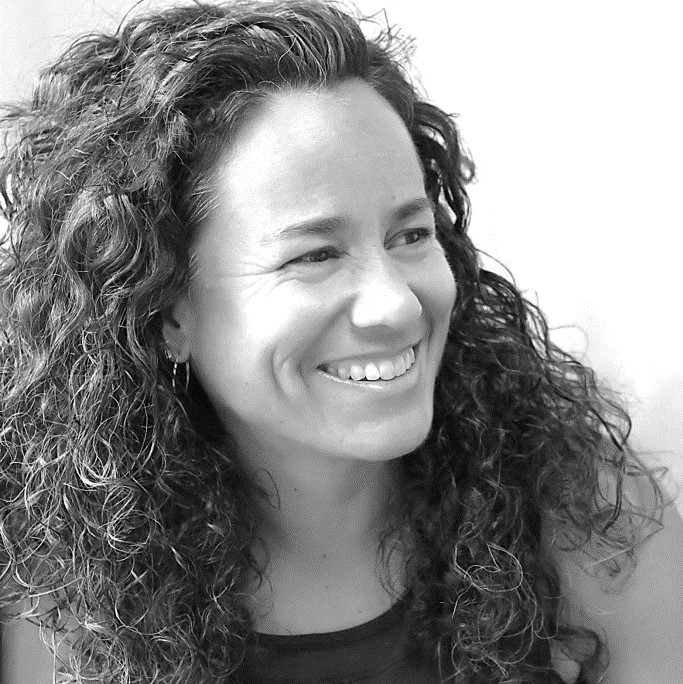
Laura van Dernoot Lipsky
Laura van Dernoot Lipsky is the founder and director of The Trauma Stewardship Institute and author of Trauma Stewardship and The Age of Overwhelm. She is the host of the podcast Future Tripping, which is dedicated to conversations about overwhelm. Widely recognized as a pioneer in the field of trauma exposure, she has worked nationally and internationally for more than three decades. Much of her work is being invited to assist in the aftermath of community catastrophes - whether they are fatal storms or mass shootings.
Simultaneously, she has long been active in community organizing and movements for social and environmental justice and has taught on issues surrounding systematic oppression, structural supremacy, and liberation theory. Laura is on the advisory board of ZGiRLS, an organization that supports young girls in sports. She is a founding member of the International Transformational Resilience Network, which supports the development of capacity to address climate change. Laura also served as an associate producer of the award-winning film A Lot Like You and was given a Yo! Mama award in recognition of her work as a community-activist mother.
In this session, participants will engage in an introductory level course to the all-day curriculum, “Healing in Action.”
Healing in Action is a strengths-based, trauma-engaged training for community leaders and members. It acknowledges and strengthens the capacity of providers to create a positive, safe environment to engage through a trauma informed and healing centered lens. Leaders explore their current strengths and challenges, how cultural wisdom enhances their Emotional Intelligence, and expand an understanding of repeated trauma and the impact of repeated trauma on development and coping. The program supports providers to not only increase their awareness but also explore their behavior at each level of the system: to engage with clients differently, to engage with each other differently, and to understand that the organization and community as a whole is part of the healing interventions.
Participants will walk away with an increased sense that healing is possible and how one can make a difference in the lives of individuals, families, and communities.

Elsie Boudreau, MSW
Elsie Boudreau (Yup’ik name: Apugen) is Master Social Worker (MSW) and a proud Yup’ik Eskimo from the village of St. Mary’s, Alaska. She serves as an Alaska Project Specialist with Tribal Tech, providing training and technical assistance to OVC grantees. Prior to that, she was a trainer with the Child Welfare Academy. She currently serves on the Alaska Children’s Justice Act Task Force. She has served on the Alaska Children’s Trust board and a workgroup member within the Capacity Building for Tribes. She helped establish an Alaska Native Unit within Alaska CARES, a Child Advocacy Center. She provided advocacy services and therapy for families whose child(ren) have been severely physically or sexually abused and conducted forensic interviews. As a prior Children’s Justice Act Project Coordinator for the Tribal Law & Policy Institute, she helped develop an educational video highlighting child sexual abuse in Alaska, grasping the wisdom of Elders, and identifying ways for healing to apply to traumatic experiences. She has also worked with law firms Manly & Stewart and Cooke Roosa Law Group as a Victims Advocate providing support to approximately 300 victims of clergy child sexual abuse in Alaska, South Dakota, Oregon, and Montana. Her advocacy work was featured in many venues including FRONTLINE (PBS) and The Huffington Post. Elsie is a 2018 recipient of the Bonnie Heavy Runner Advocate award.
Elsie has a bachelor’s degree in social work from Carroll College in Helena, Montana, and a Master of Social Work degree from the University of Alaska Anchorage. She is married, has 3 children and 2 grandchildren. She enjoys working with and for her people and strongly believes that all children have the right to grow up in a safe and loving environment. “Children are to be SEEN, HEARD and BELIEVED.”
Dr. Droby will present on his experiences working as a mental health professional in the Bering Strait Region. Some things he will discuss will be on his observations of colonizing forces that undermine the strengths of Alaska Natives. He will also present some therapeutic interventions that have worked for him with Alaska Natives. He will encourage mental health professionals, particularly non-Native mental health professionals, to examine personal issues they bring into their work with Alaska Natives and that might undermine Native self-determination.
Learning Objectives:
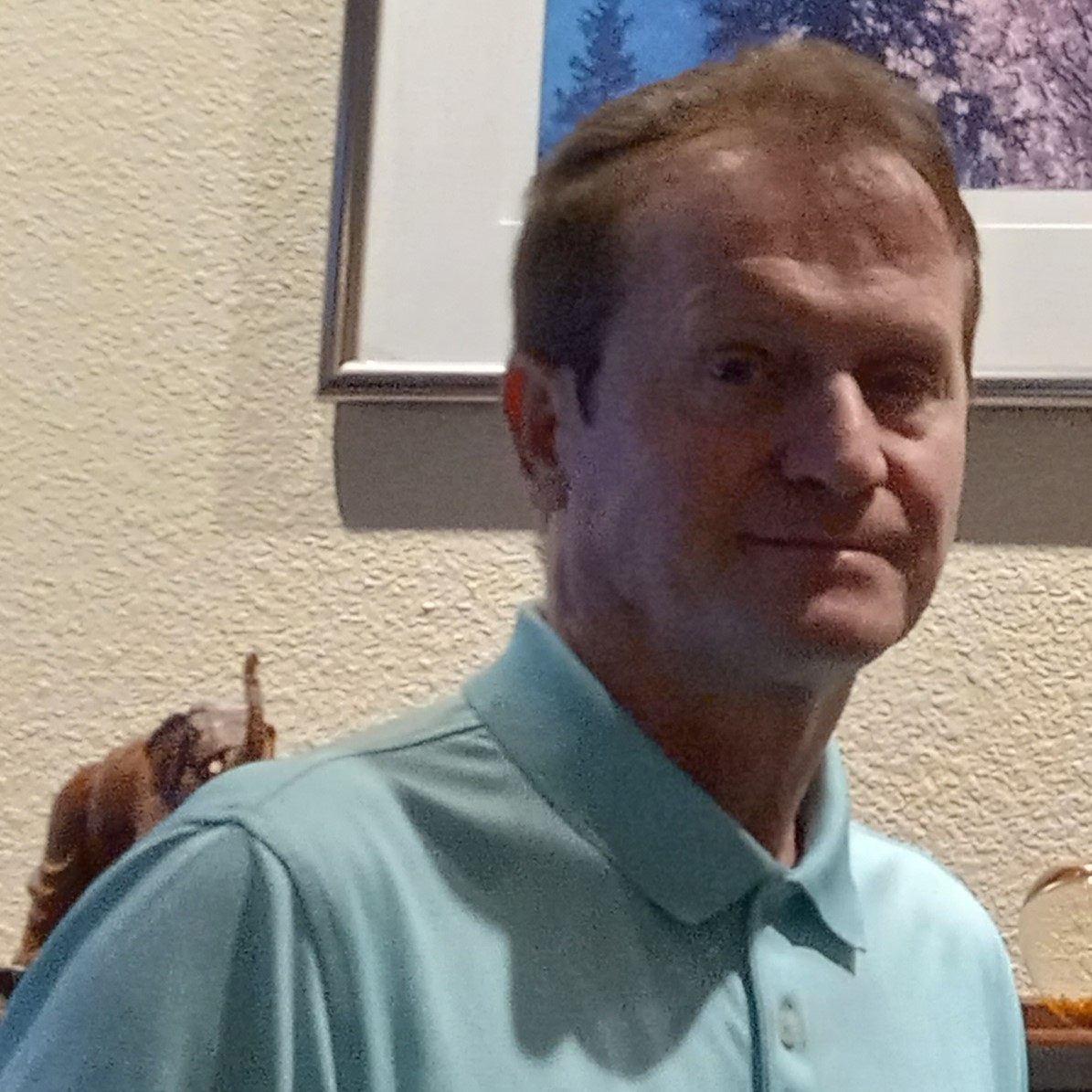
Ray Droby, PhD
Dr. Ray Michael Droby served as an officer (0-6, Captain) in the Commissioned Corps of the United States Public Health Service (USPHS) in the Indian Health Service division for twenty-five years. His entire career as a licensed psychologist was devoted to serving the Bering Strait Region with the Norton Sound Health Corporation. He has worked in the multi-cultural hub community of Nome and nearly half of his time was also spent living and working in the Native communities of Stebbins, St. Michael, Savoonga and Unalakleet although he has traveled and worked within all fifteen Native villages outside of Nome. In 2000, Dr. Droby wrote WITH THE WIND AND THE WAVES, a book emphasizing sensitivity to the history of non-Native outsiders imposing their culture on Native lands. Twenty years later, Dr. Droby published a more comprehensive version of WITH THE WIND AND THE WAVES: A Guide to Mental Health Practices in Alaska Native Communities (University of Alaska Press, 2020).
In 2009, Dr. Droby served as a founding member and the Nome site supervisor for the Alaska Psychology Internship Consortium (AK-PIC), which helps prepare and retain psychologists working in rural and remote settings within Alaska.
Dr. Droby has received many distinctions throughout his career. The Alaska Psychological Association honored him with the 2015 Cultural Humanitarian Award. In 2017, he was the recipient of the American Psychological Association’s Excellence in Rural Psychology Award. And, also in 2017, he received the National Association for Rural Mental Health’s Ann Schumacher Rural Clinical Practice Award.
In 2021, Dr. Droby retired from the United States Public Health Service. On January 26, 2022, the members of the thirty-second Alaska State Legislature recognized Dr. Ray Michael Droby for his service of over twenty-five years to the people of the Bering Strait Region.
This session will provide an overview of evidence-based practices specifically designed for FASD populations; limitations to the current body of knowledge with regards to diversity will also be discussed. This webinar will also provide an overview of secondary conditions commonly seen in those with FASD as well as protective factors.
Learning Objectives:
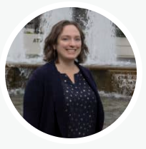
Erika Stannard, PSY.D.
I primarily identify as a clinical health psychologist, and I endeavor to work in team-based and primary care settings whenever feasible. I apply my knowledge of the interplay between biological, psychosocial, and social factors to each case and provide evidence-based intervention recommendations for healthcare delivery that match with the needs of the child, family, and health care team. Sometimes my recommendations require health provider education, or systems change. Therefore, I also engage in frequent continuing education efforts, consultation groups, outreach programs, public health collaboration groups, and student training initiatives. Currently, I am the Clinical Director at Ptarmigan Connections, a developmental and behavioral pediatric clinic in Wasilla, Alaska. I am also an Assistant Professor of Psychology and the Director of Clinical Training at Alaska Pacific University.
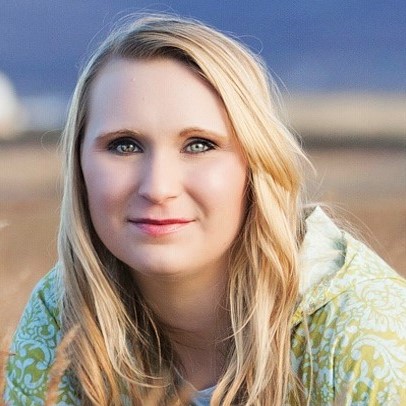
Erin Johnson, PhD
Erin Johnson is a Clinical Psychologist providing neurodevelopmental diagnostics at Alaska Native Medical Center in Anchorage, Alaska. Born and raised in Anchorage, Dr. Johnson received her PhD in Clinical-Community Psychology with a Rural Indigenous Emphasis at the University of Alaska. She spent six years in Nome and its 14 surrounding villages serving as Director of Child and Youth Services and developing a Fetal Alcohol Spectrum Disorder (FASD) diagnostic team for the region. Dr. Johnson’s work in the area of FASDs continues in Anchorage through serving on a FASD diagnostic team, providing community trainings, and educating future diagnosticians and clinicians.
Key discoveries in neuroscience have revealed a more comprehensive understanding of both the impact of trauma and the promise of post-traumatic growth. Understanding how the traumatic experience powerfully influences a person’s feeling, thinking, and behavior can significantly inform our interventions and inspire new approaches to help people with traumatic experiences heal and thrive. Most importantly, the session provides practical, “use tomorrow” tools for resilience-building as the antidote to traumatic experience.
Learning Objectives:

Frank Kros, MSW, JD
Frank Kros, MSW, JD is a career child advocate, who has served as a childcare worker, child abuse investigator, children’s home administrator, consultant, professor, attorney, writer and speaker. In April 2019, Frank started his own professional development, coaching and consulting agency, the Kros Learning Group (KLG). Prior to opening KLG, Frank served as president of the Transformation Education Institute, Director of the National At-Risk Education Network, and Executive Vice President of the Children’s Guild Alliance, a multi-service children’s organization headquartered in Maryland. Frank’s work is focused on trauma and resilience, and he was awarded a Maryland Governor’s Citation for his presentations on adolescent suicide prevention. In recognition of his presentations on childhood trauma, Frank was also the recipient of the 2019 Advocate of the Year Award from the Maryland State Council on Child Abuse and Neglect and Maryland Essentials for Childhood. He is a member of an elite group of Marylanders trained by principal investigator Dr. Robert Anda on the Adverse Childhood Experiences Study and added the title of “Master ACEs Trainer” to his bio in 2018. In 2021, Governor Larry Hogan appointed Frank to Maryland’s first- ever Commission on Trauma- Informed Care. Frank has also co-authored the books Creating the Upside Down Organization: Transforming Staff to Save Troubled Children (2005) and The Upside Down Organization: Reinventing Group Care (2008). He is the creator of scores of professional development courses for child-serving professionals and parents, including a curriculum on trauma-informed care adopted by Sacramento County, California in 2020 for its public service employees. Frank’s professional development presentations have been hosted in 45 states and 8 foreign countries. Frank graduated magna cum laude from Notre Dame Law School and practiced child custody law in California before relocating to Maryland in 2001.
Self-Regulation is an important part of self-care. This workshop will help learn and enhance their skills around Self-Regulation and how they can effectively work with the youth they serve. This workshop will provide skills to identify qualities of self-regulators, how to chicky-ity check yourself, useful tools, and more.
Learning Objectives:

Lila Vest
Lila Vest is the Clinical Director for Youth Advocates of Sitka Inc. Youth Advocates of Sitka is a community based non-profit organization dedicated to empowering the youth of Alaska. Lila is a Licensed Professional Counselor (LPC) in AK, Licensed Mental Health Counselor (LMHC) in WA, and a Board Approved Supervisor in AK. She specializes in working with adolescents and is certified in Trauma Focused Cognitive Behavioral Therapy (TF-CBT). Lila enjoys working with youth and their families, hiking, having dance parties, and long walks on the beach.
COVID-19 drastically changed everyone’s life. While some of those changes will be permanent, most of the youth in our programs and services have returned to being together “in-person” with us. Many, perhaps most, of our youth now present differently than before the pandemic. The social isolation, economic stress, barriers to resources, enduring uncertainties brought on by the pandemic interventions have created a “perfect storm” for the development of anxiety, depression, and even trauma. Youth-serving professionals at all levels can drastically increase youth resilience by implementing strategies to help youth heal, grow, learn, and thrive.
Adolescent brains are very different from adult brains. The strategies shared in this session leverage those differences for good and provide tools tailored to the unique needs of this incredibly malleable period of the lifespan.
Learning Objectives:

Frank Kros, MSW, JD
Frank Kros, MSW, JD is a career child advocate, who has served as a childcare worker, child abuse investigator, children’s home administrator, consultant, professor, attorney, writer and speaker. In April 2019, Frank started his own professional development, coaching and consulting agency, the Kros Learning Group (KLG). Prior to opening KLG, Frank served as president of the Transformation Education Institute, Director of the National At-Risk Education Network, and Executive Vice President of the Children’s Guild Alliance, a multi-service children’s organization headquartered in Maryland. Frank’s work is focused on trauma and resilience, and he was awarded a Maryland Governor’s Citation for his presentations on adolescent suicide prevention. In recognition of his presentations on childhood trauma, Frank was also the recipient of the 2019 Advocate of the Year Award from the Maryland State Council on Child Abuse and Neglect and Maryland Essentials for Childhood. He is a member of an elite group of Marylanders trained by principal investigator Dr. Robert Anda on the Adverse Childhood Experiences Study and added the title of “Master ACEs Trainer” to his bio in 2018. In 2021, Governor Larry Hogan appointed Frank to Maryland’s first- ever Commission on Trauma- Informed Care. Frank has also co-authored the books Creating the Upside Down Organization: Transforming Staff to Save Troubled Children (2005) and The Upside Down Organization: Reinventing Group Care (2008). He is the creator of scores of professional development courses for child-serving professionals and parents, including a curriculum on trauma-informed care adopted by Sacramento County, California in 2020 for its public service employees. Frank’s professional development presentations have been hosted in 45 states and 8 foreign countries. Frank graduated magna cum laude from Notre Dame Law School and practiced child custody law in California before relocating to Maryland in 2001.
In this presentation, we will discuss the process of adapting the Indigenous Connectedness framework to further learn about Indigenous early relational wellbeing. Our hope is that this research will help parents, families, practitioners, teachers, and community members with deepening and/or re-centering Indigenous ways of knowing and being into our relational connections with our sacred little ones.
Learning Objectives:
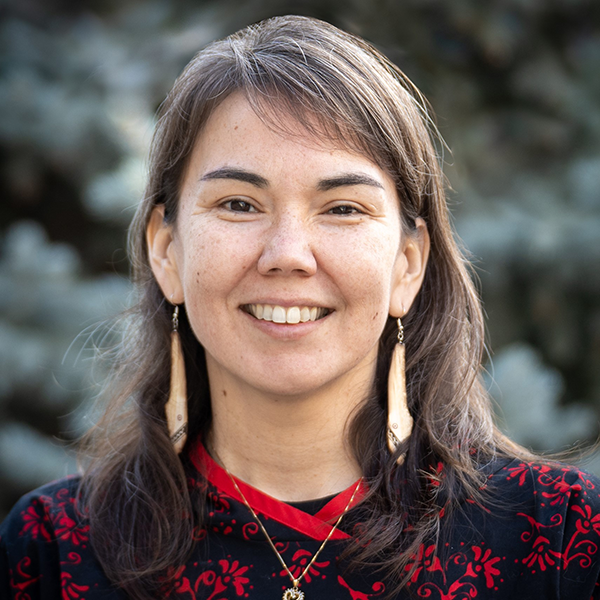
Jessica Saniguq Ullrich, MSW, PhD
Jessica Saniguq Ullrich is an Inupiaq scholar, a tribal citizen of Nome Eskimo Community and a descendant of the Native Village of Wales. Jessica’s dissertation research from 2019-2020 focused on the development of an Indigenous Connectedness Framework for child and collective wellbeing that was guided by 25 knowledge bearers of Alaska Native child welfare. Now as an Assistant Professor at Washington State University Institute for Research and Education to Advance Community Health, she focuses on the promotion of connectedness, wellbeing, relational healing, as well as social and environmental justice.
Jessica is currently engaged in efforts that involve digital storytelling with Alaska Native youth on documenting community strengths; culturally based intervention development for her Tribe; Tribal child wellbeing and prevention efforts; authentic youth engagement in child welfare; language revitalization, and connectedness for systems change. Storytelling through research, education, and authorship is central to her work.
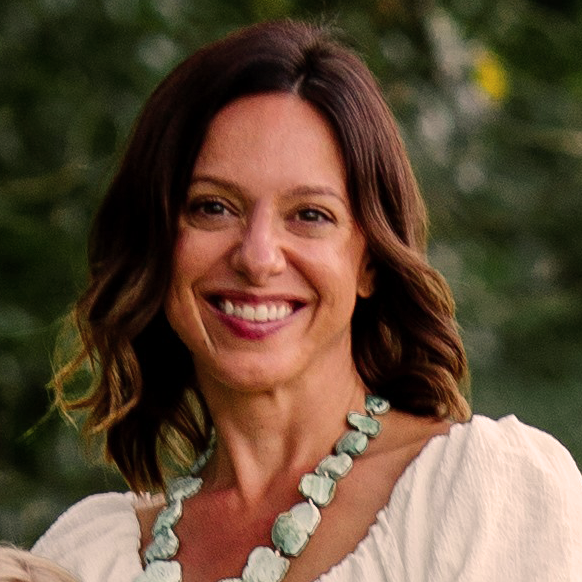
Chelsea Wesner, MPH, MSW
Chelsea Wesner, MPH, MSW, (she/her) is a Research Instructor in the Tribal Early Childhood Research Center within the Centers for American Indian and Alaska Native Health at the University of Colorado-Anschutz Medical Campus, as well as a doctoral student at the Colorado School of Public Health. She has worked with Indigenous communities for more than 15 years across public health practice and research related to maternal child health, diabetes prevention, food sovereignty, and opioid overdose prevention. Her current research interests include understanding and measuring early relational well-being and family economic well-being among families with young children in Indigenous communities.
Chelsea earned a BA in sociology and American Indian Studies from the University of North Carolina at Chapel Hill, a dual Master of Public Health and Social Work from the University of Oklahoma, and a Graduate Certificate in American Indian Public Health from the Johns Hopkins Bloomberg School of Public Health. Chelsea is originally from Oklahoma and a citizen of the Choctaw Nation. She now lives in South Dakota with her husband, a stream ecologist, and two children.
In this paradigm challenging presentation Bryan dispels some of the most common and pervasive myths regarding the most common parenting and therapy practices. By weaving experience and relevant brain science he leads to audience on an uplifting and emotional journey that will leave even the most skeptical parent or professional re-evaluating commonly held beliefs about parenting and problem behaviors.
Learning Objectives:
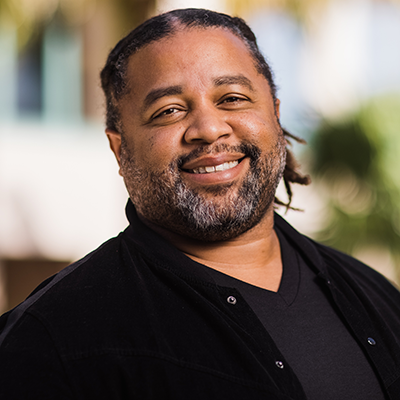
Bryan Post, PhD
Bryan Post, an adopted and former foster child, is one of America’s Foremost Child Behavior and Adoption Experts and founder of the Post Institute. A renowned clinician, lecturer, and best-selling author of From Fear to Love, The Great Behavior Breakdown and ten other books, and more than 100 video and audio programs, Bryan has traveled throughout the world providing expert treatment and consultation to a variety of groups. An internationally recognized specialist in the treatment of emotional and behavioral disturbance, Bryan specializes in a love-based treatment approach that focuses on developing a deeper understanding of trauma, stress and fear and how they rule our lives. He counters this by offering an enlightening perspective on the all-encompassing power of love to bring us peace and healing.
The love-based, family-centered principles and concepts offered by Bryan have been taught to more than one million parents and professionals around the world. You can receive a free copy of his best-selling adoption parenting book From Fear to Love by going to feartolovebook.com You can learn more about Bryan by visiting bryanpost.com.
The Alaska Blanket Exercise program is a unique, participatory history lesson–developed in collaboration with Alaska Native Elders, knowledge keepers and educators–that fosters truth, understanding, respect and reconciliation among Indigenous and non-indigenous peoples. Through this experiential learning activity, participants put themselves in the role of Alaska Native people by reading scrolls which ultimately determine their outcome as they literally ‘walk’ through situations that include pre-contact, colonization and resistance. This exercise was adapted from a best practice exercise used by Indigenous people in Canada.
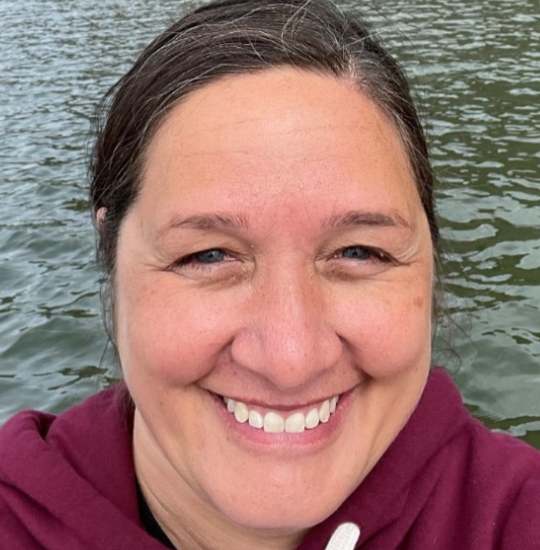
Veronica Driskill
Veronica Panyuuriq Driskill is an Inupiaq Alaskan Native and a member of the Native Village of Unalakleet. She was born and raised in the coastal community of Unalakleet, Alaska where she was surrounded by her large, extended family. Veronica is one of the Lead Behavioral Health Coordinators for the Family Services Training Center at the Center for Human Development. She has been in this position since June 2022. Prior to her current position, she was a trainer for the UAA Child Welfare Academy where she trained child welfare professionals from all across the State for 2.5 years. She’s been in the Social Services field in both urban and rural communities for 15+ years and is happy to share her experience with others. She worked for many years as a tribal partner where she learned about the importance of communication and collaboration. She also worked for the State of Alaska as a Protective Service Specialist at the Office of Children’s Services. She holds a Bachelor of Science degree in Psychology with a minor in Alcohol Studies and is currently a student in the Master of Social Work program at the University of Alaska Anchorage.
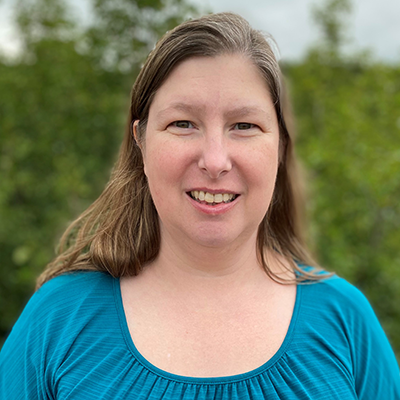
Tami Eller
Tami Eller, MS, Lead Behavioral Health Training Coordinator, was born and raised in Anchorage. She received her Master of Science in Counseling Psychology from Alaska Pacific University. Tami has been a Lead Behavioral Health Training Coordinator at the Family Services Training Center since November 2022. She comes to this work with over 20 years of experience providing services to children and families including four years as a coordinator for Volunteers of America Alaska's kinship care program, six years at the Office of Children's Services, and five years as a Therapeutic Treatment Home Supervisor at AK Child & Family. Tami’s passion is educating providers and advocating for individuals impacted by FASD and their families. She co-chaired the workgroup that developed the 9 Core Messages: What Everyone Should Know about Prenatal Alcohol Exposure. Tami has had the opportunity to provide training in Alaska, the lower 48, and Australia.

Courtney Yemiola, MA/Eds.
Courtney Yemiola, MA/Eds, Lead Behavioral Health Training Coordinator, over the past ten years has gained experience working as clinician in a variety of settings, both in homes and in the community. Courtney moved to Alaska six years ago to serve as a clinician in a residential treatment facility in Utqiagvik. While working there, one of her proudest moments was writing, and receiving a grant for $300,000 to develop a Family Reunification Project to increase the reunification rate of children and families on the North Slope. Courtney has served in clinical roles along with in lead administrative roles, to include Social Services Director for Arctic Slope Native Association. She recently moved to Anchorage to work at UAA as a training coordinator. Her passions include empowering parents, working with the 0-5 and teenager population, and using humor to help heal.
Why play? This course is designed to explore this common question. This online presentation will be interactive utilizing play experientially to support adults in feeling the healing power of play. When utilized intentionally, play fosters optimal human development. We have two hours to explore how and why it is beneficial to harness this natural phenomenon productively to promote healing.
Learning Objectives:
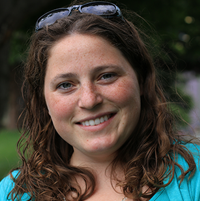
Gladys Robards, MS, LPC, RPT
Gladys Robards is a Licensed Professional Counselor and Registered Play Therapist. Gladys has a passion for helping children, adults and families overcome difficulties. In her clinical role, she has worked predominantly with Severely Emotionally Disturbed and traumatized children evidencing behavioral and developmental challenges. She currently provides counseling and psychotherapy services through private practice in Anchorage. Gladys is a current board member of the Alaska Branch of the United States Association for Play Therapy.
TBRI® is an attachment-based, trauma-informed intervention that is designed to meet the complex needs of vulnerable children. TBRI® uses Empowering Principles to address physical needs, Connecting Principles for attachment needs, and Correcting Principles to disarm fear-based behaviors. While the intervention is based on years of attachment, sensory processing, and neuroscience research, the heartbeat of TBRI® is connection.
Agenda/Learning topic:

Brooke Hayes
Brooke Hayes is an Interpersonal Development Specialist at the Karyn Purvis Institute of Child Development (KPICD). In this role, Brooke’s main focus is conducting the Adult Attachment Interview (AAI) for the Trust-Based Relational Intervention® (TBRI®) Practitioner Trainings. Brooke has also been involved with the Hope Connection 2.0 camps at KPICD with various roles ranging from a group leader to parent trainer.
Brooke earned her Bachelor’s Degree in Psychology and her Master’s Degree in Human Relations/Counseling from the University of Oklahoma in 2000. She is a Licensed Professional Counselor as well as a Licensed Alcohol and Drug Counselor. She began her career working in community mental health as an alcohol and drug counselor and transitioned to a program director for an intensive outpatient alcohol and drug treatment center. Over the years she became trained and specialized in Dialectical Behavior Therapy (DBT), Seeking Safety, Trauma Recovery and Empowerment Model (TREM), Relapse Prevention Model, Trust-Based Relational Intervention® (TBRI®), the Adult Attachment Interview (AAI), and Reflective Functioning. She began working for the Purvis institute in March 2016.
Brooke lives in Edmond, OK with her husband, 4 children, and 2 cats
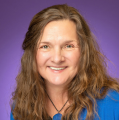
Margaret Richardson, Ph.D., LMSW
Maggi Richardson is an Interpersonal Interview Specialist with the Karen Purvis Institute of Child Development and administers the Adult Attachment Interview for participants in the TBRI Practitioner Trainings. Maggi earned her Bachelor’s Degree in Psychology from Indiana University, and her Master’s Degree in Social Work from Western Michigan University. She later earned her doctorate in Interdisciplinary Evaluation with a focus on assessment in social services, also from Western Michigan University. Maggi is a Licensed MSW, and began her career in child welfare working in Children’s Protective Services and foster care. After earning her MSW, she began providing counseling services for children and then for adults involved in the child welfare system. She is trained in Parent-Child Interaction Therapy (PCIT), Trauma Focused Cognitive Behavioral Therapy (TF-CBT), Trust-Based Relational Intervention® (TBRI ®), and the Adult Attachment Interview (AAI). Maggi began working as a research/evaluation associate with the Children’s Trauma Assessment Center (CTAC) in Kalamazoo, MI in 2009. She developed an adult trauma assessment protocol, including administration of the Adult Attachment Interview, for adults with their own history of trauma whose children were in foster care. Maggi joined KPICD part time in March of 2021 to conduct Adult Attachment Interviews for the TBRI practitioner trainings, and moved to fulltime in 2022. Maggi has two adult children. She splits her time between Dowagiac, MI and Phoenix, AZ, and lives with her daughter, two dogs, and two cats.

Henry Milton
Henry Milton is a Training Specialist with the Karyn Purvis Institute of Child Development, currently working with the team to conduct trainings on Trust-Based Relational Intervention® (TBRI®) techniques. Henry has also been heavily involved in brining TBRI® methods to schools and residential treatment centers across the country.
Henry has 15 years of experience in mental health care, residential care, and inpatient psychiatry. While studying for his Bachelors in Psychology, Henry began working with at-risk youth as a Camp Counselor, which is where his motivation to work professionally with this population began. Henry went on to work full-time as a Prevention & Management of Aggressive behavior (PMAB) instructor for inpatient psychiatry, along with being a preceptor/mental health therapist. He believes his key motivator and reason for being so passionate about working with at-risk populations, is the lasting relationships and overall changes seen in the youth.
Henry earned his B.S. from Texas A&M University-Commerce with a major in Psychology, and went on to complete his Masters from Texas A&M-Commerce/Capella University in Psychology. Henry currently resides in Fort Worth, TX, with his wife Amani Milton-Terrell, MD – Pediatrician, and their children, Elijah and Micah.
This conference is hosted by the UAA Child Welfare Academy and sponsored by Alaska Department of Family and Community Services, Alaska Department of Health and Social Services, Alaska Department of Education and Early Development, and Alaska Mental Health Trust Authority. Support is provided by the Alaska Association of Infant and Early Childhood Mental Health (AK-AIMH), thread, the All-Alaska Pediatric Partnership, and UAA Family Services Training Center. Click on each logo to be directed to the organization's site.